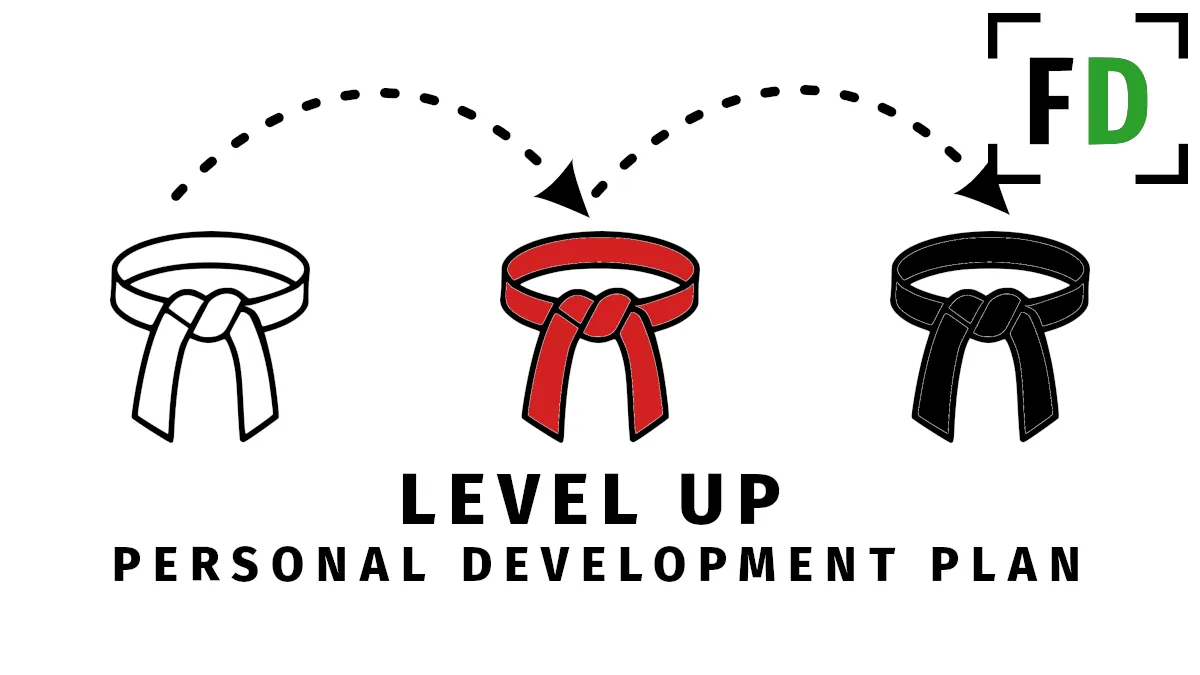Becoming a better version of yourself is all about the minor incremental improvements you make every day. But it’s not always easy to determine what improvements you should work on or how to make yourself better than yesterday. So here’s a list of ways to improve yourself today, ten self improvement tips.
I’m not going to state the obvious here; everyone knows the basic self-improvement ideas such as:
- Working out
- Creating a Productivity System
- Getting enough sleep
- Staying hydrated
- Keeping a Gratitude Journal
This article has ideas for people who want to get to the next level. Here they are.
1. Create a Process for Everything You Do Regularly
Here’s the process I use for writing:
My writing process is the most useful process I have created in the past year. Writing daily articles is challenging, and it’s easy to hit a wall or get writer’s block or burn out. But with a process, you can avoid all of this.
1. List the Steps From Start to Finish
- Find 10 Titles or Topics to Write
- Research All 10 Articles
- Outline
- Write
- Edit
2. Schedule Them Out
This is the process I am using right now. On Sunday, I find ten new topics to write about, which is an easy task and usually takes about 1-2 hours. Then I’m done for the day.
On Monday, I research for interesting data or stories about each topic and fit them into an outline. The outline is the subheadings or sub-topics I want to talk about. Steps 2-3 take between 20-40 minutes for each article.
Tuesday-Friday I’ll write the ten articles. It’s easy because I already have outlined what I’m going to cover and the relevant facts etc., in the document. So I just need to write it out.
Friday and Saturday are when I’ll start editing, making sure each article flows well and removing spelling and grammar mistakes. Then Sunday, it starts all over again.
3. Use Batching and Other Time-Saving Techniques
By batching similar tasks together, you can not only save time but also save yourself the stress that comes with constantly changing tasks. Writing and editing require very different mind frames, so switching between them is exhausting to the mind. Other techniques include
- Remove distractions
- Use Time Management Tools
- Break your tasks down
2. Quit All Drinks Except Water, Coffee, and Tea
You might not want to do this forever, especially if you enjoy the occasional glass of wine or beer. But removing all drinks but water, tea, and coffee has a host of mental and physical benefits.
Many drinks we consume, even healthy ones like fruit juices, contain lots of calories. A glass of orange juice contains 112 calories, for example. So if you’re consuming a few drinks daily, it’s easy to see how it can accumulate.
Soda and other drinks containing added sugar add unnecessary calories to our diet. But what’s less obvious is how those drinks affect our minds. Studies show that consuming sugary beverages brings the danger of memory dysfunction, lower motor coordination, reduced ability to focus, and even ADHD.
So maybe you don’t want to give up all drinks forever, but consider doing it for a month and see how you feel.
3. Create a Second Brain
What is a second brain? It’s a place to store your ideas, thoughts, and anything else that interests you. Use software like Obsidian to create your own second brain.
Having everything you care about in an external location has many benefits over keeping it all in your head.
- It’s searchable – Imagine how amazing it would be if you could google your mind for all the data and memories lost in the depths of your psyche.
- It doesn’t forget – We’ve all had those moments when we have a brilliant idea only to forget it later. While our minds are prone to forgetting important information, a second brain isn’t.
- Make connections – A second brain allows you to make connections between the different ideas contained within. This is useful for any creative work, which is essential for productivity.
- It reduces stress – Trying to keep ideas in your head is stress-inducing. Telling yourself not to forget that important task takes mental energy away from everything else you need to do. Free up all that mental energy by letting your second brain do the remembering for you.
4. Master at Least One Memory Technique
Creating a second brain is a vital self-improvement step, but that doesn’t mean you should neglect your own brain. Even if you have a piece of data stored in your notes or external mind app, you may still need to memorize it.
Mastering just one memory technique will allow you to instantly memorize names, numbers, and information, making you overpowered in debates, discussions, and conversations. As a result, you’ll be better at sales, persuasion, and communication in general. People trust someone who can back up what he’s saying with accurate data. In addition, they feel much more rapport with someone who remembers their name.
Learning at least one of these memory techniques will give you this ability.
- Loci or Memory Palace
- The Story Method
- Pegging Method
- POA
- The Major System
5. Learn People Skills and Practice on Omegle
Public speaking is arguably the most important skill you can develop. Mobilizing and motivating people is the key to being productive at scale. There’s only so much you can do alone.
The only way you get better at anything is by practice, we all know this, and most of us apply it. But have you ever thought of practicing building rapport, persuasion, being likable, and other communication skills?
You can do this with the chatting app Omegle. Omegle connects you with a random person and throws you into a video call with them. Most calls last less than a minute, meaning you can practice your skills with 50 people in an hour.
Spend an hour each night honing your rapport-building skills, and you could practice with 1400 people monthly. Then, imagine how much better at sales you could be after 1400 practice sessions.
6. Figure Out What You Believe and How to Defend It
Regardless of where you live and what you believe, you will get challenged by other people, books, media, or even by other ideas.
It can be significantly disrupting to be constantly challenged and convinced that what you believe isn’t true. If you’re unsure of exactly what you think or cannot defend it, the world will constantly challenge you, and people will overturn your beliefs again and again.
There are endless subjects to establish what you believe, but here are some of the most commonly discussed.
- Politics
- Religion
- Ethics
- The best way to live
Once you have thought about these areas, read deeply into the established ideas, and solidified your opinions, it’s time to memorize some evidence to support them. Again, using a second brain or memory technique to access this information is essential.
7. Apply What You Learn
We’ve all seen videos or blog posts from people with titles like “I read 100 self-help books in a year, here’s what I learned.” And while these are intriguing videos to watch, reading personal development or self improvement on such a scale has one drawback, you can’t apply that much information to your life.
The point of self improvement or self-help is to learn things that can make a positive change in your life. You’re wasting your time if you aren’t applying what you learn.
For example, let’s say you read Getting Things Done, but rather than setting up your own GTD system, you buy The Bullet Journal Method and start reading that instead; once finished, you read The Pomodoro Technique.
It may seem that you are gaining an overview of the main principles of productivity. Still, without applying anything you’ve learned, you do not understand the principles of productivity and haven’t been productive. You could have spent that time working on your latest project and got something done.
A failed GTD system will teach you more about productivity (and yourself) than reading ten time management books and applying none.
8. Always Be Learning Something
What are you learning right now? If you need to explain it, it’s not specific enough. Here are some ideas:
- Learn a New Language
- Coding
- A Specific Software
- Musical Instrument
- A Professional Skill
- An Academic Subject
9. Create a Diet You Can Do Forever
Overcome your bad eating habits to improve your self-esteem, your self-confidence and your mindset. It will change your life and it’s totally achievable.
If you spend mental energy every day deciding what you should have for breakfast, lunch, or dinner, you won’t be as productive as you could be. Instead, that mental energy could be going into your business, family, or other projects.
Not having a diet also creates other problems, such as fluctuations in weight which affect energy, mood, and health. Building a diet that worked for me changed my life and my productivity.
Avoid all of these issues by spending some time upfront to research the ideal diet for you with enough flexibility not to get bored and healthy enough that you never need to worry about gaining weight. Once you have your diet dialed in, it’s one less thing you need to worry about.
- Paleo
- Keto
- No Added Sugar Diet
- Slow Carb Diet
- Vegan
- Vegetarian
- Raw Diet
There are so many diets out there that you can adopt. You just need to figure out the right one for you.
10. Check Your Life Balance with the Triangle Method
What is the triangle method? It’s a way of balancing your life that my mentor taught me over 20 years ago, and I’ve used it consistently since to keep my life in balance.
The triangle method sees three areas of your life: physical, mental, and spiritual, as the sides of a triangle. When any area is lacking in your life, for example, being unfit would be physically lacking, that side of the triangle becomes too short to join to the other two.
Using the triangle method, there are two solutions. One is to focus more on the lacking side, which might mean going to the gym in our example. The physical side would then grow to be able to touch the other two.
The other option is to grow the other two sides long enough to reach the shorter side. This would mean spending more time on your mental and spiritual life to balance your physical lack.
This method is advantageous if unforeseen circumstances hit you. If, for example, you were in an accident that left you unable to work out, you might quickly become depressed. But focusing on your mental life, such as reading more, and on your spiritual life, such as prayer or meditation, could bring you back into balance.
Check out this post for a complete explanation of the triangle method.
Final Thoughts
These self-improvement tips should give you something to think about and a few tasks to add to your to-do list.






